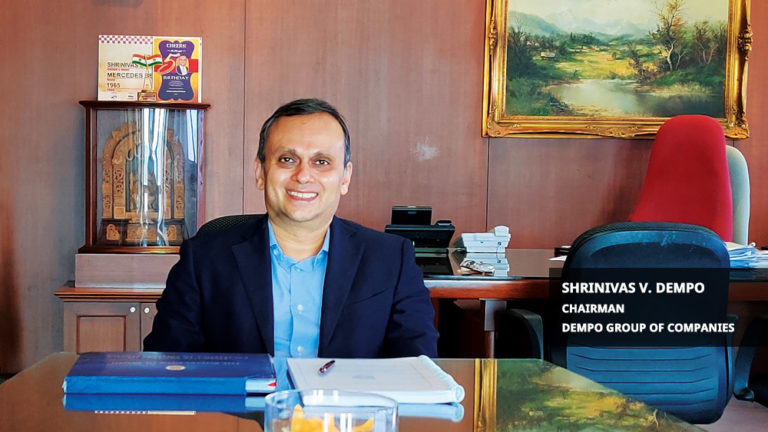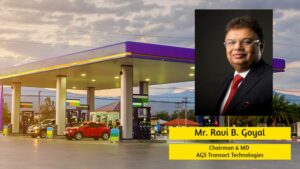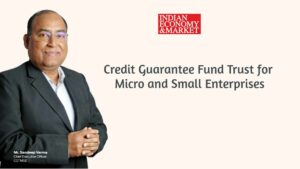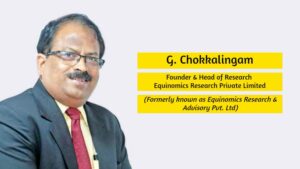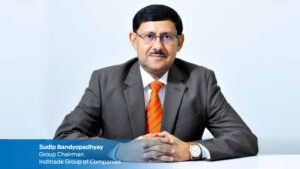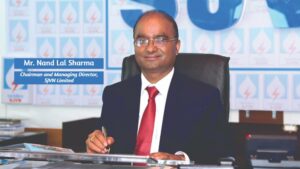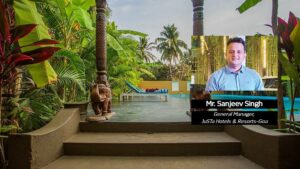The name Dempo is almost synonymous to coastal state Goa. One of the oldest and very reputed families in the state, they have their footprints in almost all the major business segments which touch a common man’s life. The Dempo family’s 550 years old history has a far wider reach in business and philanthropy in the state. Relentlessly fulfilling their social responsibility as a duty, when even the word ‘social responsibility’ was unheard of in the country, its extensive engagement with Goan society is remarkable covering institutions of higher education, cultural enrichment, environmental conservation, sporting excellence and affirmative action.
It was all started by the late Vasantrao S Dempo in the year 1941 but the businesses were consolidated by his son the late Vasudeva V. Dempo. Mr Shrinivas V. Dempo represents the third generation. In business, the Dempo Group’s activities cover calcined petroleum coke production, shipbuilding, newspaper publishing and electronic media, food processing, real estate development, sports promotion, travel business, agro farms, dairy and mining.
As the economy is reeling under severe strain due to Covid-19, Indian Economy & Market decided to get a first-hand revelation from someone who is well-versed with different segments of the economy and is standing tall knee-deep in the whole affairs. With Krishna Kumar Mishra in a free-wheeling chat Shrinivas V. Dempo, Chairman of the Dempo Group of Companies shares his experiences while dealing with the situation arising out of the pandemic, his various ventures and his vision for the beautiful state of Goa.
“We are open to strategic tie-ups and acquisitions, available in the space we are operating in”
It’s not always one gets an opportunity to speak to someone who controls an empire and also who is burdened with a very rich legacy coupled with highest values. To start with, how you manage to make a balance with all these responsibilities?
It’s basically a responsibility to run a legacy business, as you said, and generally, the feeling is that after three generations the business value gets destroyed. I’m the third generation so the responsibility is even more. Our business was started by my grandfather in 1941. That time our primary activity was iron ore mining and from there we expanded. We had a very long term relationship with Japanese steel mills and in fact, we always believed in relationship businesses. Mainly we were in industrial products with few buyers but those buyers meant a lot to us. We always believe in the philosophy of ‘customer is the king’ and that’s how we maintain the relationship.
Tell us how from mining the company branched out and expanded in such divergent segments?
From mining, we expanded to various other activities. Today our flagship company is Goa Carbon, which is a listed entity – the carbon additive business which goes into the manufacture of aluminium. The company is a regular supplier to aluminium smelters, graphite electrode and Titanium Dioxide manufacturers. My father consolidated the business and during my time we expanded it. Now we are India’s second-largest Calcined Petroleum Coke producer in the country. We operate in multiple states, not only in Goa but Chhatisgarh and Odisha. In this business, the buyer relationship is very important to us. We deal with big industries and industrialists such as Vedanta, Hindalco and government PSUs like Nalco. We are dealing with them since the last three-four decades now so our core philosophy continues to guide us.
I think legacy has two values. The first is doing business with a human face. So for us, the corporate social responsibility was a way of life much before it became mandatory. Generally, if you take our group, we had been actually spending much above the prescribed norm since long; we spend more than 5% of our profit. And that has been done for now last three generations.
Beyond mining and the Calcined Petroleum Coke, we also diversified into related businesses such as shipbuilding and ship repair. Immediately after Goa got its liberation from the Portuguese, my grandfather said that two things are very important for a new and free Goa. One was a newspaper of its own. So he set up two newspapers – one is English newspaper which continues to be the premium English daily in the state. We also came up with a local newspaper in the language of Marathi. These again exist for more than five decades.
The second that my grandfather emphasized was setting up of institutions of higher learning. All our ancestors had to go to either Bombay or Belgaum to study as there was no institution for higher learning in Goa. There were only Primary and secondary schools. Both these were set up with the main objective of serving the young Goa. As you know Goa was left behind in every sphere. India got its independence in 1947 whereas we were till 1961 under Portuguese. Currently, we have diversified segments of the business. One is Calcined Petroleum Coke, second is shipbuilding and ship repair, and third is real estate.
Our Real Estate Company is called Devashri Nirman LLP. When people talk about Goa they only talk about high-end houses and villas. But we specifically cater to the middle class. We focus on lower-cost housing model. Primarily because our philosophy has always been that, given India’s population which is now rising above the poverty line, everyone is graduating to a high level. We found the demand most in this segment. So all our apartments are catering to the needs of middle-income housing. That’s where we focus on and we are doing quite well in that segment. Today we are one of the Goa’s biggest real estate developers.
Tell us about the shipbuilding units?
We have Dempo Shipbuilding & Engineering in Goa and Modest Shipyard in Gujarat. In fact, we had to venture out to Gujarat because there were limitations in Goa. We could repair or build only certain small size of ships. When we saw opportunities opening up in the defence sector we went and first did a JV, and then we bought it. Now it is a wholly-owned subsidiary of the group.
How Hindustan Foods came up?
First, we started it in 1988 as a result of our foray into the FMCG segment through a joint venture with Glaxo India. Now the majority shareholder is Mr Sameer Kothari and we are a significant minority in that company. We are India’s largest contract manufacturers. We do job works for almost all the multinationals. Right from Hindustan Unilever to, you name the MNCs, and we are with them. The thrust on this has been the growing population in India which is now demanding better quality food products. Even in rural areas, people are demanding branded products. Mr Sameer Kothari was already in the contract manufacturing. So this was a listed entity he got to expand the business. Today HFL is almost `1000 crore in sales with only contract manufacturing.
Tell us about your other ventures.
In addition to all those I told, we have started two small businesses. One is agriculture in Goa. We have started in a small way but the intention is to grow it bigger and bigger because again this is a non-recessionary sector. And with a growing population, the demand for food grain is likely to increase. We have started with dairy farming and agriculture. Another business is related to the IT sector. We’ve set up one of Goa’s unique co-working space and that’s doing quite well. Many of the companies outside Goa prefer to be in Goa because of the healthy environment. Besides, we also have a number of good activities and the plan is to focus and grow in each of it.
There are a lot of disruptions happening in the entire segment of the economy and industry. Your take?
Covid was, in a sense, a learning lesson for us. First few months were very difficult as everything came to a halt when the national lockdown was announced. But I immediately lined up our senior management, many of the mid-level managers, and said that we should first start production because production had come to a halt. I said let us not look at the demand rather we’ll start with our supply first. We were one of the few industries in Goa to start our petroleum coke manufacturing within a month time after obtaining necessary regulatory permissions. So there were supply chain disruptions, I’m not saying no. But our relationships with our suppliers and buyers we managed to start production as well as supply, as early as in the month of May. So we got up and started moving. No doubt, there were still local lockdown and restrictions that slowed down the businesses. Today I’m happy to tell you that we’ve come to almost 80-85 per cent of a pre-Covid level. A lot of cost-cutting and process improvements were done. My senior management was kind enough to accept the pay-cut. Teamwork really worked well. Of course, all the cuts that we had imposed are now reverted.
We also made certain strategic decisions with our clients and customers. They all supported us. We thought this was the way to build relationships and continue to be with each other. That’s how we were able to tide over the crisis. They also helped us with paying our invoices faster and as a result, we had some cash flow. As I said earlier, there were a lot of cost cuttings. In fact, you don’t realize till you have an event like Covid, how much of the flab you have in the company. That flab was cut as a result we had almost 15-20 per cent cut in our costs, which in a good year will give you bounty profit. Some of that cost-cutting will be of a permanent feature as we found those activities were not at all required. As you said, there was certainly a lot of disruption but I think there were a lot of learning lessons as well.
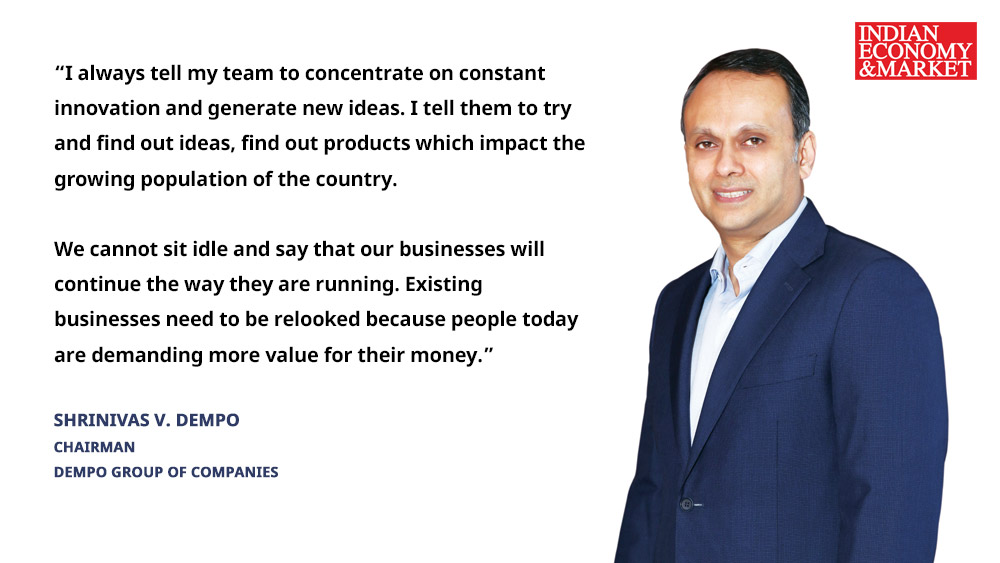
What strategy you are going to adopt after the Covid crisis gets over?
We are formulating proposals for new economy businesses. As I said, we started in a small way in agriculture and IT. Those definitely we’ll be expanding, plus, we are also looking at some strategic investments. We’re studying on many fronts – as you see India’s aluminium sector is growing very well, at around plus 6 per cent. As they are looking at expanding then we may also have to look at expansion in that particular segment. Of course, we have not taken any decision but a lot of thinking is going on as how the aluminium smelters are expanding and what plan they have. And in real estate, now my team is working on low-cost housing to which Modi government has given special benefit.
Does that mean you are moving to a lower-income group?
Yes, exactly. We find a lot of demand in that segment but the challenge is in meeting the cost target. Right now it is on the drawing board and our management team is working as how we can make it happen. So basically the focus is on the new economy businesses and extension of existing businesses, such as the carbon business and real estate. We are also open to certain strategic tie-ups and acquisitions, any of these if available, in the space that we are operating in. We find that this is an opportune time to look at new investments.
The covid-19 outbreak has impacted the complete economy. Yet Goa Carbon and other group companies have shown good performance. How you plan to go ahead?
As I said earlier, we have been able to take some rather bold decisions. Now as all of us know, the economy is also improving so the demand for our products has also gone up. For example in the carbon business and real estate, we find the demand has shot up. So it was a combination of process improvement, cost-cutting and now the demand. That is the reason you see healthy performances.
Being the first family amongst the Goa’s industrial arena what in your view is the current status of industries in Goa?
I personally feel that Goa is a small state and it has its advantages and also disadvantages. Goa cannot absorb large-scale manufacturing, like large-scale steel plant, large-scale aluminium smelter. Goans lifestyle is a little different. Considering all this I think Goa should concentrate on two areas. One is, traditionally mining which has contributed a lot to the Goan economy particularly to the rural side of the economy.
Unfortunately, it is facing some challenges and currently, the case is in the Supreme Court. We are hopeful that mining should start and that should positively contribute to the GDP. But that mainly focuses on the hinterland of Goa. Another major segment is tourism. But here again, there are challenges. I feel the state should focus on high-end tourism. Let high spending tourists come for which we need to build the infrastructure and we need to create the environment. A small place like Singapore is having 5 times more tourists than us. So why can’t we tap the potential of Goa? So I think somewhere down the line, though tourism is the major economy in our state, we need to look at it in a different way. And the third is IT. We got the startup and IT policy in Goa rather very late. In fact, a lot of IT investment has gone to Karnataka and Andhra Pradesh. But Goa can look at the startup policy and attract a lot of people to settle in Goa because of the lifestyle it provides.
So I think a lot of startup businesses, innovative businesses can come into Goa. As a small exercise, we have also started looking at investing in small businesses. Basically, we have a startup fund and we invest in startups which are invited to set up shop in Goa. In fact, mainly it has to do with IoT and related businesses. So I feel Goa should focus on these two-three segments.
You have been constantly pushing benchmarks. What is your next move to keep this sustainability?
I always tell my team to concentrate on constant innovation and generate new ideas. Basically, I believe that necessity is the mother of all inventions. So I tell them to try and find out ideas and products which impact the growing population of the country. We cannot sit idle and say that our businesses will continue the way they are running. Existing businesses need to be relooked because people today are demanding more value for their money. They are demanding better quality products for which we need to keep on innovating. At the end of the day, your customers may support you only to an extent. So you got to keep on innovating, pushing the cost down, pushing up the process improvement, and coming up with better products.
One of our mantras is to keep on innovating. Now for pushing a benchmark you have to build a good team. Teamwork, according to me, is extremely important. So for me, you have to keep good quality people, young people who will contribute to this exercise of constant innovation and look for new areas of businesses.
Rapid Fire Round
Mr Shrinivas Dempo is leading the family business since 1998. Using his post-graduate management degree in Industrial Administration received at Carnegie Mellon University, USA, he has given a new direction to the business group. His stewardship has been marked by an expansion of existing businesses, benchmarking of products and processes to international standards, the introduction of progressive people management systems, and the deepening of corporate social responsibility.
He has been holding many offices in chambers and associations, including the presidency of the Western Region of the CII. In 2014, he was honoured with the Asia Pacific Outstanding Entrepreneurship Award. The Republic of Italy has named him it’s Honorary Vice-Consul in Goa, making him the only Indian citizen to hold such a consular position. Widely travelled, Shrinivas V Dempo is married to Ms Pallavi and they have two daughters, Girija and Vasundhara. He is a deeply spiritual individual. His first major decision was the acquisition of two companies upcountry and their merger into Goa Carbon Limited, leading to a considerable increase in its installed capacity which showcased the dynamism and his vision.
And as the proverb goes – there was no looking back.
What drives you?
Making a difference to and touching as many lives as possible.
What is your philosophy of life?
Live with integrity and have peaceful sleep.
What is your routine like?
Morning up by 7, exercise by 8:30 am followed by breakfast and arrive in the office by 10 am and evening back by 6 pm. Quality time with family. Early dinner and sleeping by 11 pm.
Your defining moments?
When I lost my father to cancer and had to lead the group in difficult circumstances.
How you make a balance between your various passions?
I personally believe if you like something, time is never a constraint between a family business and personal likes. You can always achieve all.
Which of your personality traits has not been widely known?
Highly respect the teaching profession and in the long run, when I find the time, would love to teach in a business school.
Any regrets that you wish to share?
I view life as full of ups and downs but I am a diehard optimist and have no regrets in life.



